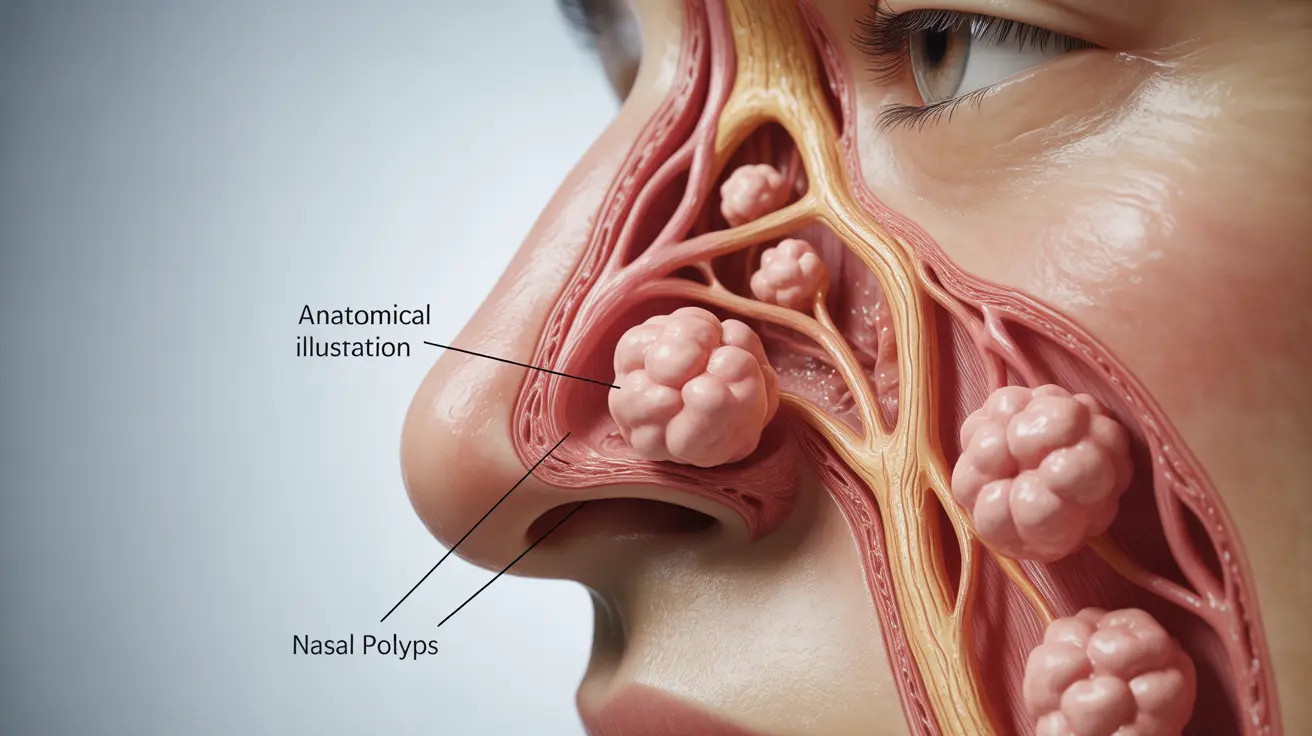Nasal polyps are soft, painless growths that develop in the lining of your nasal passages or sinuses. While these benign growths can be frustrating and impact your quality of life, various treatment approaches exist to help manage and potentially cure this condition. Understanding your options, from medical interventions to lifestyle modifications, is crucial for finding an effective long-term solution.
This comprehensive guide explores both surgical and non-surgical treatment options for nasal polyps, helping you make informed decisions about your care while working towards a permanent solution.
Understanding Nasal Polyps and Their Impact
Nasal polyps typically develop as a result of chronic inflammation in the nasal passages. They can cause various symptoms, including:
- Persistent nasal congestion
- Reduced sense of smell
- Breathing difficulties
- Frequent sinus infections
- Runny nose
- Postnasal drip
Medical Treatments for Nasal Polyps
Corticosteroid Treatments
Corticosteroids are typically the first-line treatment for nasal polyps. These medications work by reducing inflammation and potentially shrinking the polyps.
- Nasal sprays
- Oral corticosteroids
- Injectable corticosteroids
Biological Medications
Recent advances in medical treatment have introduced biological medications that target specific antibodies involved in inflammation. These medications can be particularly effective for people with severe cases or those who haven't responded well to other treatments.
Surgical Options and Their Effectiveness
When medical treatments aren't sufficient, surgical intervention may be necessary. The most common surgical procedure is endoscopic sinus surgery, which removes polyps and corrects issues with the sinuses that make polyps more likely to develop.
Post-Surgery Care and Management
Following surgery, ongoing management is crucial to prevent polyp recurrence. This typically includes:
- Regular use of nasal corticosteroids
- Saline irrigation
- Follow-up appointments with your healthcare provider
- Monitoring for signs of recurrence
Natural and Alternative Approaches
While medical treatments are essential, several natural approaches can complement traditional treatments:
- Nasal irrigation with saline solution
- Steam inhalation
- Essential oil therapy (under medical supervision)
- Anti-inflammatory diet modifications
Preventing Nasal Polyp Recurrence
Long-term management and prevention strategies are crucial for maintaining results:
- Managing allergies effectively
- Avoiding irritants and pollutants
- Maintaining good humidity levels
- Following prescribed medication regimens
- Regular medical check-ups
Frequently Asked Questions
Can nasal polyps be cured permanently without surgery?
While some nasal polyps may respond to medical treatments alone, particularly corticosteroids and biological medications, a permanent cure without surgery isn't guaranteed. Success depends on factors like polyp size, number, and underlying causes.
What are the most effective medical treatments to shrink nasal polyps?
Corticosteroids, both topical and oral, are typically most effective for shrinking nasal polyps. Biological medications like dupilumab have also shown significant success in treating severe cases.
How does nasal polyp surgery work, and will the polyps come back after surgery?
Endoscopic sinus surgery removes polyps and can correct anatomical issues contributing to their formation. While surgery can be very effective, polyps may recur without proper post-operative care and ongoing management.
Are there home remedies or non-surgical options that help manage nasal polyps symptoms?
Yes, several non-surgical options can help manage symptoms, including saline nasal irrigation, steam inhalation, and avoiding triggers. However, these should complement, not replace, medical treatment.
What lifestyle changes or preventive measures can reduce the risk of nasal polyp recurrence?
Key preventive measures include maintaining good allergen control, using prescribed medications consistently, avoiding environmental irritants, and keeping regular follow-up appointments with healthcare providers.




